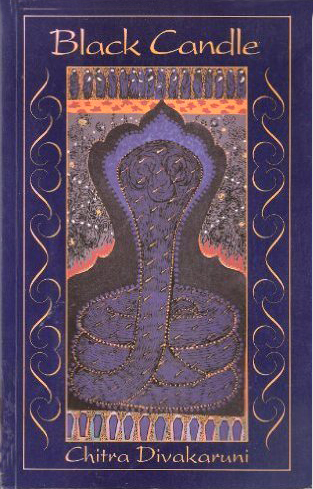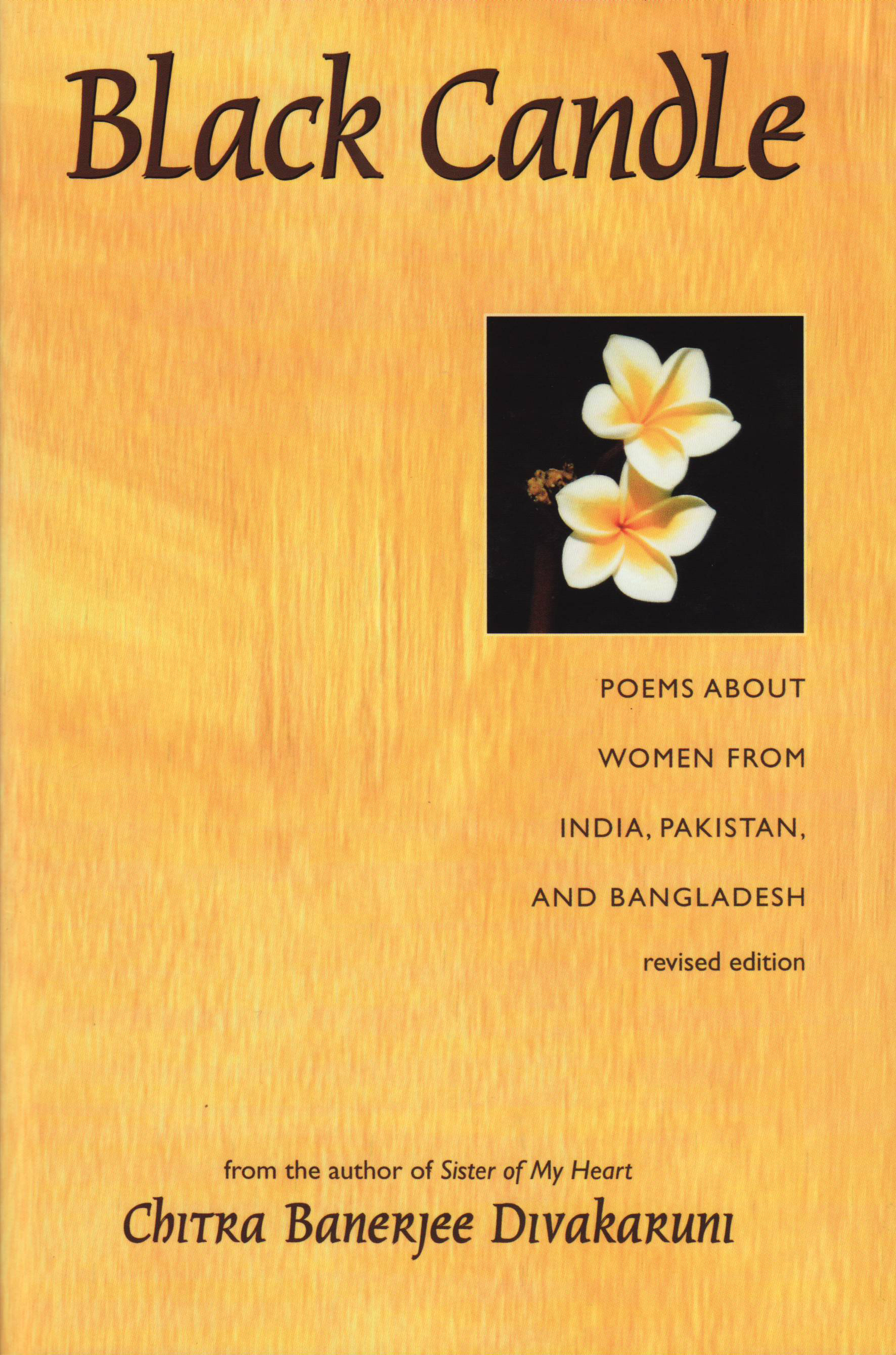BLACK CANDLE (1991)
Divakaruni’s first collection of poetry, Black Candle, chronicles significant moments in the lives of South Asian and South Asian American women of all ages and backgrounds in sumptuous and jeweled language rich with metaphor.
Praise for Black Candle:
“Black Candle is a book that bears witness to the condition of women and to the condition of the world. Rich with colors, sounds, scents, with flowers and spices and fabrics and waters and sorrows and smoke, the world in this book is a necklace of bright pearls that burns the skin, yet is daily lifted up and owned, fastened to the body with a jeweled clasp: the compassion of Chitra Divakaruni’s fiercely seeing heart.” (Jane Hirshfield)
“[She] gives us the real grit, pain and joy of these women’s lives.” (Bakunin)
“...[M]oving narrative poems…” (The Bloomsbury Review)
“Divakaruni’s very sensuousness…adds to the poignancy of the pictures she paints…Deeply human, unabashedly feminist, this books is a testament to the women it depicts.” (Booklist)
Excerpt
On Opening a Box My Mother Left in My House
Softened by her wearing, these white saris,
yet stiff with reproof. You? still here?
while in Bengal the jasmined widow moon
paces insomniac outside my bedroom sill,
and from chill ricestalks the jhi jhi chants
a prayer for the dead, or the old—the same thing.
White is the color of futility, foam on flood waters
(did you know twenty thousand died this year?)
It is spittle dried on the lips of ghosts doomed
to tell and retell a story no one hears.
In childhood too you were disobedient. Once,
running from me you tumbled down the stairs,
had to be taken for stitches. I held you still—
your father never could stand blood.
Under the doctor’s lamp your lips were
bruised oleanders. Now my eyes are going,
that shade returns to me more and more,
your outraged gaze. You wanted me
to save you, like I want (as though such things
are possible) you to save me. After she fell
Third Aunt was bed-prisoned seven months.
When they dressed her for cremation,
the sores were rash crimson, huge as
king hibiscus. Why is it that as lives fade
memory brightens its steep, stubborn tints?
White is what I pray for, a graceful erasure,
color of the bel flower I’ve asked them
to dip in sandalwood and drape on my body
so that you, reaching a still house too late,
will be faced only with fragrance.













